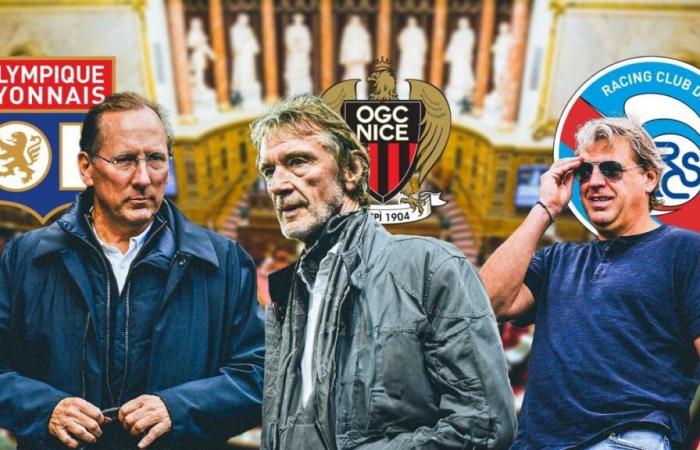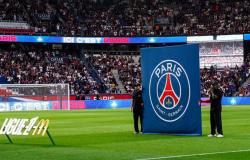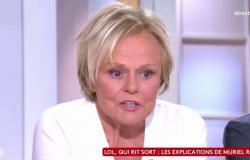
After several months of analyzing the management methods of French professional Football since the Mediapro affair, senators Laurent Lafon (chairman of the commission) and Michel Savin (rapporteur) reported the conclusion of their investigation entitled “Football-Business: Stop or Again ? » during a major press conference in the Senate, at which the editorial staff of Foot Market was invited. This major fact-finding mission on the intervention of investment funds in French professional football was an opportunity to return to a wide range of subjects revolving around an ecosystem which is going adrift. At the end of this senatorial mission, rapporteur Michel Savin drew up a list of 35 recommendations with a view to improving governance and strengthening the regulation of the French football sector. Proposals which were unanimously validated by the Senate during a vote earlier in the week and which aim to pave the way for concrete developments: “ The mission is attached to this French model which emphasizes solidarity and redistribution, while guaranteeing fair and attractive competitions up to the highest level. », explains the report in its introduction.
The rest after this ad
Amid other debates highlighted such as the poor economic management of the Professional Football League (LFP), the fiasco linked to the negotiation of TV rights or the numerous conflicts of interest involving several players in the sector, the report information n°87 of the Senate made on behalf of the committee on culture, education, communication and sport, that the drafting of Foot Market was able to obtain, points to another growing phenomenon within French football, that of multi-ownership of clubs which has become legion in recent years: “ Given the difficulties that the reduction in rights will cause for French clubs and in the absence of a new “miracle solution”, there is a risk of owners going out of business in favor of international investment funds. . These investors provide essential capital to finance an increasingly expensive sport, but they are not intended to attach themselves in the long term to a club or to establish themselves in a territory. », we can read in the introduction on page 7 of the information report. The Senate is ready to take the bull by the horns.
An explosive, uncontrollable boom in French football
The 35th and final recommendation of this information report therefore concerns timeshares. The Senate invites French football in particular to “better limit and control multi-ownership in conjunction with UEFA and FIFA to preserve the fairness of sporting competitions and protect the European sporting model”. : “ I think that indeed, on timeshare, we must look at the phenomenon by analyzing it carefully. You don't necessarily have to have a strong opinion in one direction or another, but carefully weigh the consequences. What also seems important is to maintain a model in which there are several types of owners. Mention the timeshares, these large investment funds which own different clubs in Europe, there are also still, in France and fortunately clubs which are the property of people who have succeeded to the point of professional and who, because they have an attachment to the club or territory in its fabric of these clubs, invest their personal money in these clubs », told us Senator Laurent Lafon, president of the report. In 2023, 37 of the 96 clubs in the major European football leagues are backed by private investors, or more than a third. In France, 8 Ligue 1 clubs were under foreign flags.
The rest after this ad
State-linked investment funds have shown strong interest in European football in recent years. Symbol of sporting softpower, Qatar (PSG), Saudi Arabia (Newcastle) and the United Arab Emirates (Manchester City) have become important players in the sector. Chinese investors are also present, such as in Auxerre in France: “ This coexistence of the two systems seems extremely important to us and we can clearly see that currently, there is a form of conflict or a risk that one system will take precedence over the other and the worrying financial situation of the clubs resulting from the reunification of the audiovisual rights weaken a series of clubs and mainly the second series. Clubs which are owned by families or individual owners make them easy prey for investment funds, we have to be extremely vigilant and that is why we attract attention so it This is why it is one of the common threads of Michel Savin's proposals. Attract attention and ask the State and the French football federation to become more involved in the organization », continued Laurent Lafont.
A model that worries French leaders
In France, 10 Ligue 1 clubs are integrated into multi-club investment structures, i.e. the majority, as well as 7 Ligue 2 clubs. We can notably cite Olympique Lyonnais with Eagle Football Group, Toulouse FC with the Red fund Bird, ESTAC with City Football Group, Red Star with 777 Partners, OGC Nice with Ineos, RC Strasbourg from BlueCo. These teams share the common point of evolving within groups owning other clubs, some of which weigh heavily in the European landscape (Manchester United, Manchester City, AC Milan, etc.). This situation highlights a serious trend since, according to UEFA, 105 European top division clubs, or 13% of all clubs, have cross-ownership relationships with one or more other clubs: This last recommendation follows our hearings. Several times this topic of timeshares came up in the discussion. Several clubs have expressed their concern to us about the proliferation of timeshares, even club presidents. They are also worried about this phenomenon which is becoming more and more widespread. This recommendation is rather to say to the Federation and the League, put all your weight into the discussions at the European level, because it cannot be resolved at the national level alone. », Explains the rapporteur Michel Savin. The announcement of the upcoming takeover of Paris FC by the Arnault Family in collaboration with the football branch of the Red Bull group was received positively since it announces a cohabitation between a classic local-national system and another multi-ownership operation. This phenomenon of multiple ownership nevertheless brings significant fear among the managers of subsidiary clubs, because they are afraid that their resources will be used by larger competitors.
The rest after this ad
French clubs are rarely leaders in their group. The risk is that these French teams are considered as the antechamber of first teams: “ This is a debate that must be held at the international level, at the European level, and that is why these recommendations are very targeted, some towards the League, others towards the Federation, towards the ministry, it is a phenomenon where today some presidents are very worried about what is developing », concluded Senator Michel Savin. In France, article L. 122-7 of the Sports Code prohibits the same private person from controlling exclusively or jointly several sports companies in the same discipline, or from exercising significant influence. This ban is limited to the national territory and therefore does not prohibit the multiple ownership of sports companies, as long as only one of them is attached to the national territory. UEFA has also implemented Article 5 in its official Champions League regulations which has not always been applied in the context of Red Bull Leipzig and Red Bull Salzburg in the past, Manchester City and Girona this season or even AC Milan and Toulouse FC in the Europa League last season. Under the supervision of the Club Financial Control Body (ICFC), these timeshare groups must make significant changes by transferring shares or ceding part of sports management, while agreeing not to enter into agreements between member clubs of the same group and not to use the database of other subsidiary clubs for transfers.
Pub. the 03/11/2024 16:00
– UPDATE 03/11/2024 18:00





